New Beginnings
The most beautiful part of January isn’t the snow or the magical lighted displays around town, but instead it’s the chance for a new beginning....
AP & Honors Mathematics
Explore Wiley titles to support both AP and Honors mathematics instruction.
Literacy Skills & Intensive Reading
Connections: Reading – Grades 6–12
Empower student success with a proven intensive reading program that develops strong reading skills in striving readers.
Drama, Speech & Debate
Basic Drama Projects 10th Edition
Build students’ confidence and competence with comprehensive, project-based theatre instruction.
Literature
Connections: Literature
Support learners as they study dynamic, relevant texts and bring the richness of diverse voices to students through literature.
Literature & Thought
Develop critical thinking, reading, and writing across literacy themes, genres, historical eras, and current events.
Language Arts
Vocabu-Lit® – Grades 6–12
Help students build word power using high-quality contemporary and classic literature, nonfiction, essays, and more.
Connections: Writing & Language
Help students develop grammar, usage, mechanics, vocabulary, spelling, and writing and editing skills.
Reading/English Language Arts
Measuring Up to the English Language Arts Standards
Incorporate standards-driven teaching strategies to complement your ELA curriculum.
English Language Learners
Measuring Up for English Language Learners
Incorporate research-based best practices for ELLs with an approach that includes a focus on language acquisition strategies.
Mathematics
Measuring Up to the Mathematics Standards
Incorporate standards-driven teaching strategies to complement your mathematics curriculum.
Foundations
Measuring Up Foundations
Help students master foundational math skills that are critical for students to find academic success.
Science
Measuring Up to the Next Generation Science Standards
Give students comprehensive NGSS coverage while targeting instruction and providing rigorous standards practice.
Assessment
Measuring Up Live
Deliver innovative assessment and practice technology designed to offer data-driven instructional support.
For a better website experience, please confirm you are in:
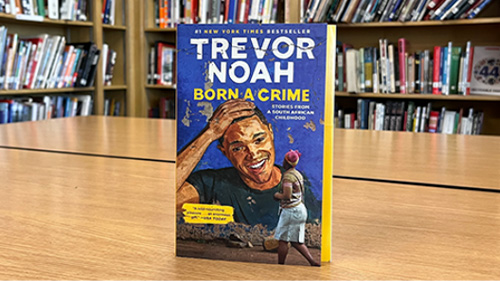
Born a Crime: Stories from a South African Childhood is a memoir by Trevor Noah about his upbringing in South Africa and how he became a popular comedian in America as host of The Daily Show.
Noah was born into apartheid in 1984 and raised by a very opinionated but supportive single mother named Patricia who refused to let her race (Black) keep her or her children from living in fear. Noah’s father was white, so racial identity was tricky for Noah living in a segregated country. Many people of color considered him white and the enemy, while white people wondered if he was Black or just colored, as they refer to in the book. Each of these identities held different treatment by authorities and others. At the end of the day and throughout his memoir, Noah said he chose to be categorized as part of the Black community because he felt most comfortable and at home among the people he was raised with and by.
Apartheid (pronounced a-par-tied) was a system of institutional racism in South Africa that segregated the country for decades from 1948 until Nelson Mandela’s release from prison and presidency in the early 1990s. Mandela is known for restoring freedom to people of color in South Africa and ending apartheid. The end of apartheid was a new beginning not only for Trevor Noah, but for all people of color in South Africa.
Noah explains apartheid here:
The genius of apartheid was convincing people who were the overwhelming majority to turn on each other. Apart hate, is what it was. You separate people into groups and make them hate one another so you can run them all. (3)
When apartheid was dismantled, Trevor had the freedom to explore his identity and hold his own opinions and values highly to direct the rest of his life. This eventually led him to move to America to pursue his comedy career, drawing from the stories and past he writes about in this book. Many countries have harmful systems in place to disallow autonomy in its individuals. Understanding this worldly perspective helps grow an appreciation for others when you’re tempted to judge them or speak without knowledge about them.
In Germany, no child finishes high school without learning about the Holocaust. Not just the facts of it but the how and the why and the gravity of it—what it means. As a result, Germans grow up appropriately aware and apologetic. British schools treat colonialism the same way, to an extent. Their children are taught the history of the Empire with a kind of disclaimer hanging over the whole thing. “Well, that was shameful, now wasn’t it?” In South Africa, the atrocities of apartheid have never been taught that way. We weren’t taught judgment or shame. We were taught history the way it’s taught in America. In America, the history of racism is taught like this: “There was slavery and then there was Jim Crow and then there was Martin Luther King Jr. and now it’s done.” It was the same for us. “Apartheid was bad. Nelson Mandela was freed. Let’s move on.” Facts, but not many, and never the emotional or moral dimension. It was as if the teachers, many of whom were white, had been given a mandate. “Whatever you do, don’t make the kids angry.” (183)
Mini Lesson
Interested in buying any of the books mentioned in this post? Visit our classroom libraries page.
Download the pdf to easily print or save!
Jennifer Epping is a high school English and journalism teacher in Des Moines, Iowa. She has a passion for reading, writing, and making lame jokes to her students just to see them laugh or roll their eyes. She just concluded her ninth year teaching. Epping graduated from Iowa State University with a BS in journalism and mass communication (2010) and BA in English Education (2013). She attended New York University’s Summer Publishing Institute (2010), and spent some time in children’s book publishing in New York.

The most beautiful part of January isn’t the snow or the magical lighted displays around town, but instead it’s the chance for a new beginning....
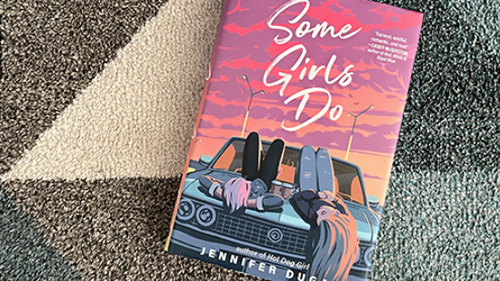
Many students endure the (not-so-fun) ritual of moving schools mid-year. In Some Girls Do by Jennifer Dugan, this is the reality of one of the two...
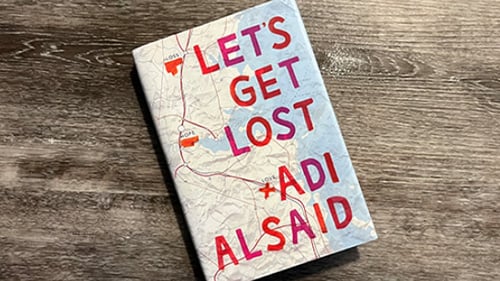
Adi Alsaid has released many young adult books since his first title, Let’s Get Lost, but I can promise you, this one blazes through as just as good,...

Tokyo Ever After: A Novel by Emiko Jean has been climbing the charts as one of the most popular books right now for young adults. With Netflix’s “The...
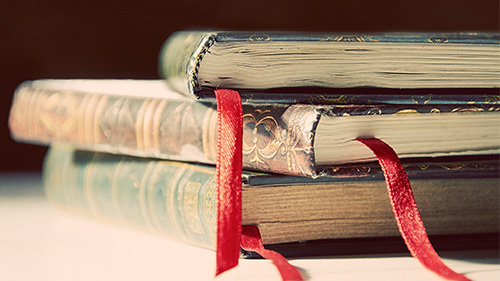
On the day after state testing, one of my sophomores burst into the room and announced: “Mr. G, I used rule of three on my essay.” It was a proud...

Before transitioning away from life as a public school educator, I worked as the academic trainer for English and social studies in a large, urban...
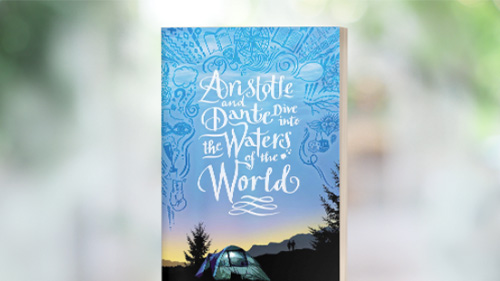
For most of the past year and half, I have spent most of my waking hours querying or obsessing over querying literary agents for my young adult novel

The golden rule of reading is “don’t judge a book by its cover,” and even though I’m not in this instance, it would lead to the same decision: buy...
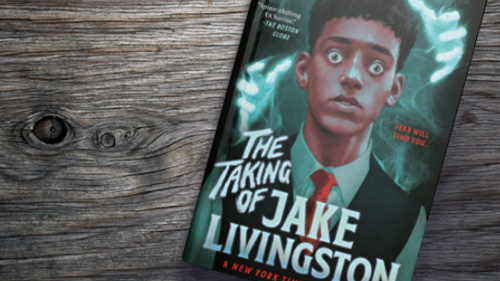
My mother tells this story of being so exhausted that she couldn’t get up to rock my older brother, her first child, back to sleep in the middle of...
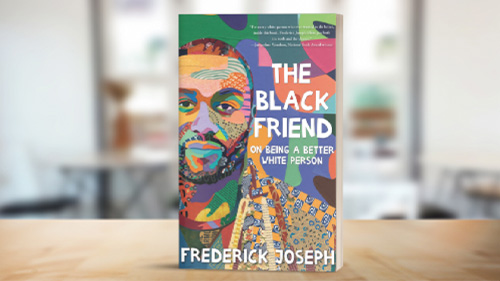
In just the past few weeks, I’ve seen two friends post on social media about their spirit animals. Neither of them is Native American. Recently,...
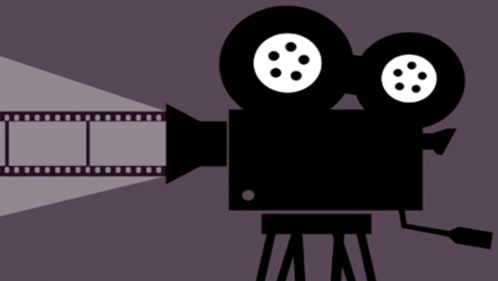
For book lovers, it’s nothing new to read a good book and seek out the movie rendition, but for students, many seek out movies or TV shows and then...
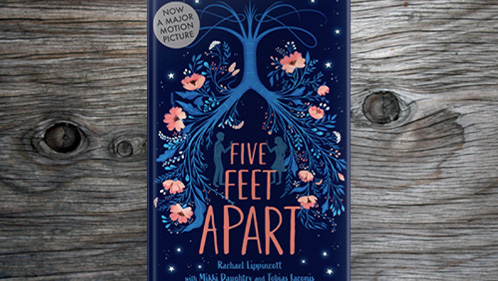
It’s not very often that TV shows or movies come before the book version, but it does happen sometimes! The art of writing is alive in visual media...
